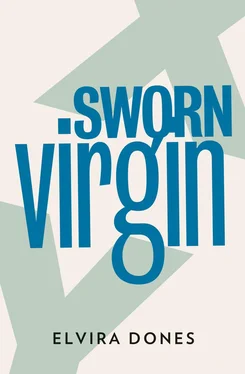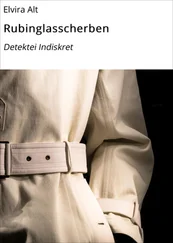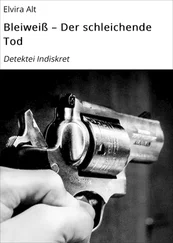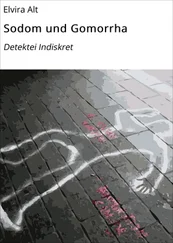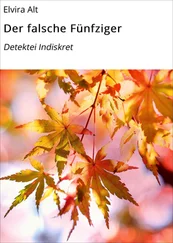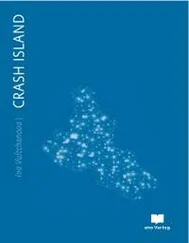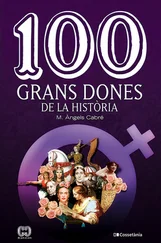Cow dies in one of those scorching weeks. The vet from the agricultural cooperative climbs up to the Dodas’ house to give them the news, and looks around.
‘You must be hungry, young lady,’ he says. ‘What are you living on?’
‘Sheep’s milk, Comrade Veterinary Surgeon.’
‘That’s not enough.’
Hana smiles, confirming with her eyes.
‘Tomorrow come to me and I’ll give you a bit of flour, sugar and other stuff.’
Hana doesn’t say that they don’t have the money to pay and whatever money they do have goes on drugs for Uncle Gjergj.
‘Ok,’ she says instead. ‘Thank you very much. I’ll be there.’
She’ll get by as well as she can, without begging for free food. Uncle Gjergj would be furious.
Uncle and niece spend the summer in a kind of truce, with the oncoming death looming over them.
On September 10, Arben Leska sends her a letter in which he says that he is about to leave for Paris.
At the end of the month, Gjergj gets up, and for a couple of weeks he seems better. He can’t talk out loud and he can only swallow liquids, but he stands surprisingly upright. At times he even walks a bit. At other times he spends hours with Enver, at the door to the pen. One morning Hana hears him cursing the animal in a voice like sandpaper.
‘You’re a son of a bitch,’ she hears him say. ‘You’ve ruined our lives, you stupid billygoat.’ Enver bleats away, unaware of the insults directed at him and unable to defend himself. His droppings land squarely on Gjergj’s shoes.
It’s a beautiful fall. Dawn takes its time turning into daylight, but the sunset is unwilling to concede to night. Everything is suspended, like a feather, or a breath, or a memory that doesn’t want to be forgotten. And maybe Paris is make-believe, just like Gjergj’s sickness.
When there is absolutely nothing left to eat in the house, Hana decides to ask for work at the agricultural cooperative. They give her a position cleaning the animal pens.
She sets off early in the morning and gets back home late in the evening every day for four weeks running, until one day she realizes that the number of ashtrays and grappa glasses scattered around the house means that a lot of people must have been there in her absence. She questions Gjergj but he denies having had visitors.
Their neighbor, old mother Rrokaj, confirms that Gjergj is about to host an engagement party in Hana’s honor, and that her future husband is a man from a village on the Kosovo border. He’s from a good family and, rather than taking Hana to his village, he has promised to move into the Dodas’ kulla after Gjergj dies. He’s an elementary-school teacher in his village and so he is educated, like Hana.
‘You’re a lucky girl,’ the woman says. ‘Your uncle is such a good man that he won’t die before providing for you.’
For three days Hana stops eating and refuses to talk to Gjergj.
Down in Tirana, school has already started. Some of the girls in her dorm must have fallen in love, and her favorite desk in the Introduction to Linguistics class has probably gained an extra doodle or food stain.
On the second day of November, the snow comes. This year it is later than usual. She has to go to Scutari to get more drugs.
‘Make sure I don’t find anyone in the house when I get back,’ she warns her uncle before setting off.
‘You don’t give orders to me, young lady.’
‘And if I do, what will you do?’
It’s one of those rare occasions when he has managed to stand up straight and tall, like a rock in the middle of the dark room.
‘No betrothals or husbands while I’m away, Uncle Gjergj. That was the deal.’
‘It was, but not anymore. The wedding will be at the end of the year.’
He is so thin that, for the first time ever, Hana finds him ugly. They stare at each other angrily, and then Gjergj softens a little, and tries to sit down. Hana doesn’t make a move to help him.
‘Don’t make me hate you, I beg you,’ she says.
‘Just look at you! You’re so tiny,’ he says, clearly in pain. ‘Help me, I need to sit down.’
She turns around and leaves the house, slamming the door as she goes. She starts walking through the snow that has started to settle unexpectedly. She only stops to look back at the kulla when she is far enough away not to be seen by her uncle, who must surely be looking out of the window. She hasn’t even placed the soup that she cooked the night before where he can reach it for his dinner.
She finds a ride down to the city in a truck driven by a peasant with a southern accent. Hana gives him the fare and climbs in without thinking twice. The driver stinks of alcohol and cigarettes, but in the mountains all the men stink of alcohol and cigarettes, so she relaxes.
The driver asks her a question every now and then, which she answers in monosyllables.
‘This evening I have to go back up your way,’ the truck driver says when they are just outside Scutari, at the Rosafa castle. ‘I’ll unload the wood here and then go back up to the mountains to sleep so tomorrow I can bring down a new load. If you want I’ll give you a lift back.’
They negotiate a time and a fare. The man seems as angry as she is and they say goodbye without looking each other in the eye.
By the afternoon, Hana’s anger has dissipated. She’ll go home and be a good daughter to the old man, she promises, not for the first time. For one more month everything will be all right. She’ll give him his drugs and he’ll say, ‘Good girl, you’re like a son to me.’
She eats two byrekë at a stand in the center, near the Rosafa Hotel. Then she drops in at the library and borrows three books to return next month. By the end of her day in town she’s even in a good mood.
During the trip back, the truck makes slower progress than it did on its way down because of the snow, even though it is empty.
Hana tries to be a little more friendly and asks the driver if he has any children. He mumbles something. He must be seriously angry with someone in the city, or maybe at himself, and is as hostile as he was this morning, so she stops trying to be nice.
At one point they see a group of people waving their arms to stop the truck, but there’s no way he’s going to pick them up. Hana tries to tell him the truck is empty so he could give those people a ride, but he tells her to mind her own fucking business and leave him alone. For half an hour they don’t say a word. Then, when it is completely dark outside, the man stops the truck, leaving the engine running.
‘I got to take a piss,’ he slurs. ‘Back in a minute.’
When he climbs back into the truck, his pants are open. Hana doesn’t realize at first. The man’s words are disgusting enough. She listens because she has no choice. The man says she’d better let him have his way, and anyway it doesn’t make any difference. Women don’t go out on their own unless they’re up for it. Hana is shocked by his rough language. She slips her hand into the jute sack at her feet just in time. Don’t make a fuss, lady, I won’t hurt you, we’ll just have a little fun together. When he pushes himself onto her, Hana is ready with her knife and she plunges it into his chest. Aunt Katrina always used this knife to take the heads off their chickens. The man groans. Hana always takes the knife with her when she goes down to the city. She sharpens it without letting Uncle Gjergj see.
‘You fucking bitch!’
She jumps out of the truck and runs into the trees beside the road.
‘You fucking bitch! Peasant woman! Mountain bitch!’
She doesn’t get home until the next day, wet with snow and dead tired. Uncle Gjergj is as white as a shroud. He hasn’t slept a wink. He looks at her as if she were a ghost. He doesn’t ask any questions, but bangs his stick over and over on the stone wall, on the table. He’s no stronger than an ant. She can’t see his face. He’s curled up in the corner of the room, his head buried in his chest.
Читать дальше
